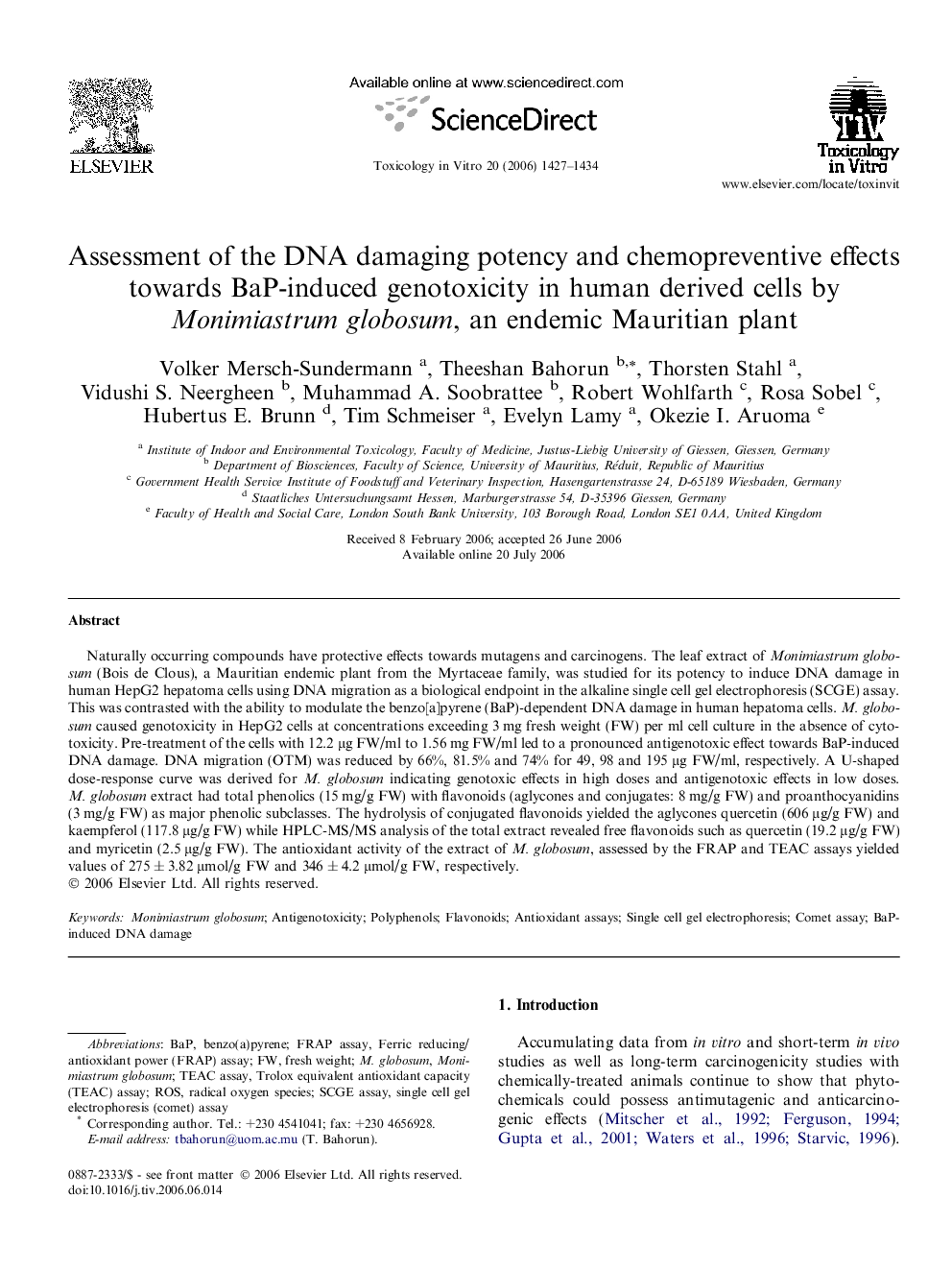| Article ID | Journal | Published Year | Pages | File Type |
|---|---|---|---|---|
| 2603585 | Toxicology in Vitro | 2006 | 8 Pages |
Naturally occurring compounds have protective effects towards mutagens and carcinogens. The leaf extract of Monimiastrum globosum (Bois de Clous), a Mauritian endemic plant from the Myrtaceae family, was studied for its potency to induce DNA damage in human HepG2 hepatoma cells using DNA migration as a biological endpoint in the alkaline single cell gel electrophoresis (SCGE) assay. This was contrasted with the ability to modulate the benzo[a]pyrene (BaP)-dependent DNA damage in human hepatoma cells. M. globosum caused genotoxicity in HepG2 cells at concentrations exceeding 3 mg fresh weight (FW) per ml cell culture in the absence of cytotoxicity. Pre-treatment of the cells with 12.2 μg FW/ml to 1.56 mg FW/ml led to a pronounced antigenotoxic effect towards BaP-induced DNA damage. DNA migration (OTM) was reduced by 66%, 81.5% and 74% for 49, 98 and 195 μg FW/ml, respectively. A U-shaped dose-response curve was derived for M. globosum indicating genotoxic effects in high doses and antigenotoxic effects in low doses. M. globosum extract had total phenolics (15 mg/g FW) with flavonoids (aglycones and conjugates: 8 mg/g FW) and proanthocyanidins (3 mg/g FW) as major phenolic subclasses. The hydrolysis of conjugated flavonoids yielded the aglycones quercetin (606 μg/g FW) and kaempferol (117.8 μg/g FW) while HPLC-MS/MS analysis of the total extract revealed free flavonoids such as quercetin (19.2 μg/g FW) and myricetin (2.5 μg/g FW). The antioxidant activity of the extract of M. globosum, assessed by the FRAP and TEAC assays yielded values of 275 ± 3.82 μmol/g FW and 346 ± 4.2 μmol/g FW, respectively.
